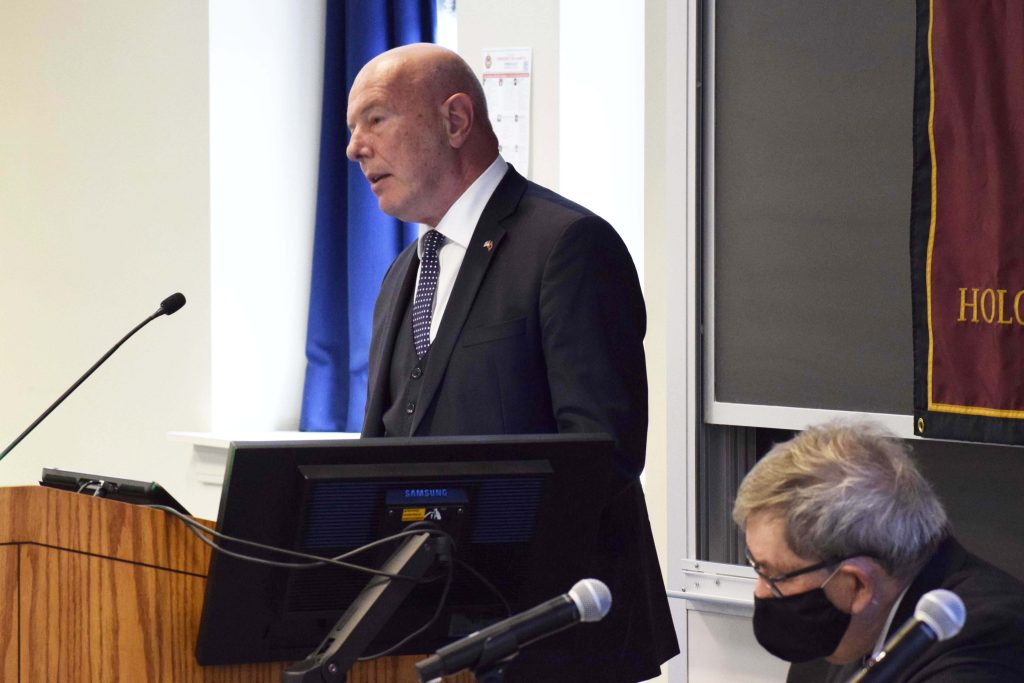A delegation of dignitaries from Southeast Europe made the case for a new understanding of the Balkans and their troubled past during a talk at BC Law on Sept. 10. Former Major General of Albania Jeronim Bazo (pictured above) said the region is building toward a new future and pointed to arms control as one of the initiatives in that effort.
Bazo is director of the Regional Arms Control Verification and Implementation Assistance Centre (RACVIAC), which serves, he said, as a vehicle for “fostering dialogue, integration, and cooperation” among its member states in the Southeast area of Europe.
The organization is a reflection of its citizens’ preference to no longer use “Balkans” as their identifying term, but rather “Southeast Europe” because of the negative connotations of the earlier designation, Bazo explained.
“The countries of our region have moved past the ethnic hatred and nationalism and are now focused on building the new—building the future,” Bazo said. “You may have visited the Korean War Memorial on the National Mall that reads that freedom is not free. The countries of the region have had to pay a steep price to achieve the modern stability. Our job [at RACVIAC] is to maintain that stability and continue fostering this growth.”
He described goals of the group, now 20 years old, as creating a cooperative security environment through arms control, supporting security sector reform and governance, and fostering international and regional cooperation in the area.
United States District of Massachusetts Judge Richard Stearns also spoke at the event. He has been a frequent presenter in RACVIAC’s Rule of Law and Legal Ethics Program, where legal scholars and experts give advice on how to foster these relationships through the law.
Stearns provided some historical context for relationship-building between and within nation states. Modern tensions between nations are “generational issues that constantly require refurbishment and re-enforcement,” he said. Some things fail, like attempts to create a just jury system in Russia after the fall of the Soviet Union. But there are also successes, he noted, offering as an example the creation of a functioning legal system in North Macedonia.
Stearns concluded by calling upon the students in attendance to build on the progress that organizations like RACVIAC have made. He noted that many of the same problems that exist in the world, like isolationism and fervent nationalism, existed when he was a student at Stanford University in the 1960s. “I encourage you all to pick up where we stopped…and follow through,” he said.
Other RACVIAC members in attendance were Josip Mandic and Lt. Col. Deniz Ozturk.
The event was sponsored by the Owen M. Kupfershmid Holocaust/Human Rights Project (HHRP) at BC Law. Named for its founder, a 1986 law school graduate, HHRP helps to ensure that the precedential value of Holocaust-related law is fully realized and applied to state-sponsored human rights violations today. The project also organizes major conferences to address specific legal issues related to the Holocaust and other human rights violations, such as its annual Kupferschmid lecture.
Photo by Vicki Sanders


